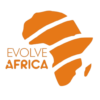One of the significant challenges facing education is the lack of materials in indigenous languages. Many students struggle to learn English as a second language, and the pressure to perform can be overwhelming. But what if we could create a system where our indigenous languages are recognized as official languages in schools and workplaces? Imagine being able to learn and work in your native language without having to break the bank or feel like you’re at a disadvantage. Unfortunately, we lack textbooks and educational resources in our local languages, making it difficult for students, especially those in rural areas, to understand complex concepts.
For instance, if you’re trying to explain a concept like sugarcane to a child in a rural area where the Hausa language is primarily spoken, using the English term might not register. But if you use the Housa word “rake” the child will instantly relate to it, making the teaching and learning experience more effective. By incorporating indigenous languages into our educational system, we can foster a deeper understanding and appreciation of the subject matter.
As the Bible says in Acts 2:6-8, “The crowd was amazed and confused. ‘How can each of us hear them speaking in our own native language?’ they asked. ‘We are from different countries, and yet we can understand them'” This verse displays the importance of communicating in a language that people can understand.
By recognizing the value of indigenous languages in education, we can create a more inclusive and effective learning environment. As the saying goes, “if you want to get to the heart of a man or woman, speak his or her language.” People are more receptive to information when it’s presented in their native language. By welcoming this approach, we can break down language barriers and that’s we are currently working on:
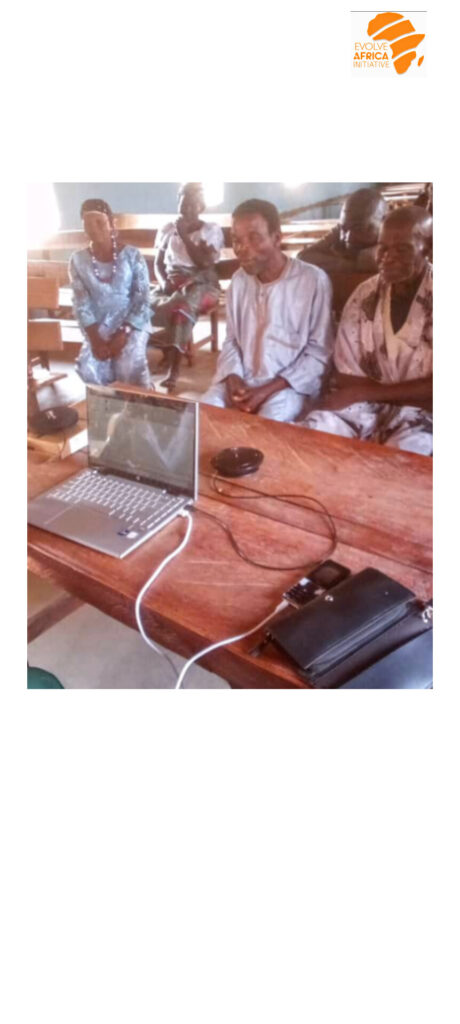
At Evolve Africa Initiative, we are deeply concerned about the barriers that prevent people, especially in rural areas, from accessing and understanding information in their own indigenous languages. As an organization committed to empowering women farmers and youths with entrepreneurial skills, we recognize the importance of education in bridging the knowledge gap. However, we also acknowledge that education is not just about imparting knowledge, but also about making that knowledge accessible and understandable to everyone, regardless of their linguistic background.
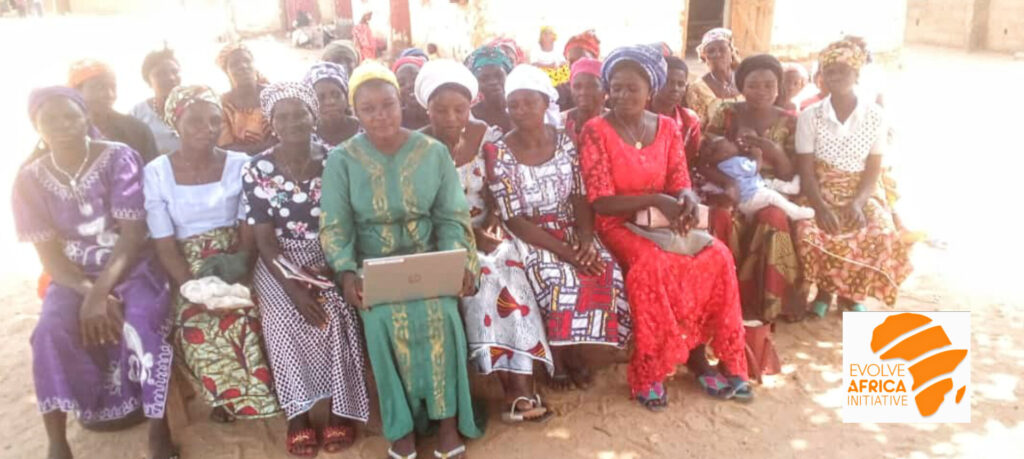
This is why we have embarked on a groundbreaking project to translate the Bible into the Kusur language in Plateau. For us, this is just the beginning of more translation projects to come. We believe that by making this sacred text available in the native language of the Kusur people, we can empower them to access and understand the information contained within. This project is not just about translation; it’s about preservation of culture, promotion of literacy, and empowerment of a community. We have already made significant progress on this project, and we are grateful to the community leaders, contributors, and volunteers who are working tirelessly to bring this vision to life. As we work towards completing this project, we are excited about the potential impact it will have on the Kusur people of Plateau State and we invite anyone who shares our vision to join us in supporting this initiative.
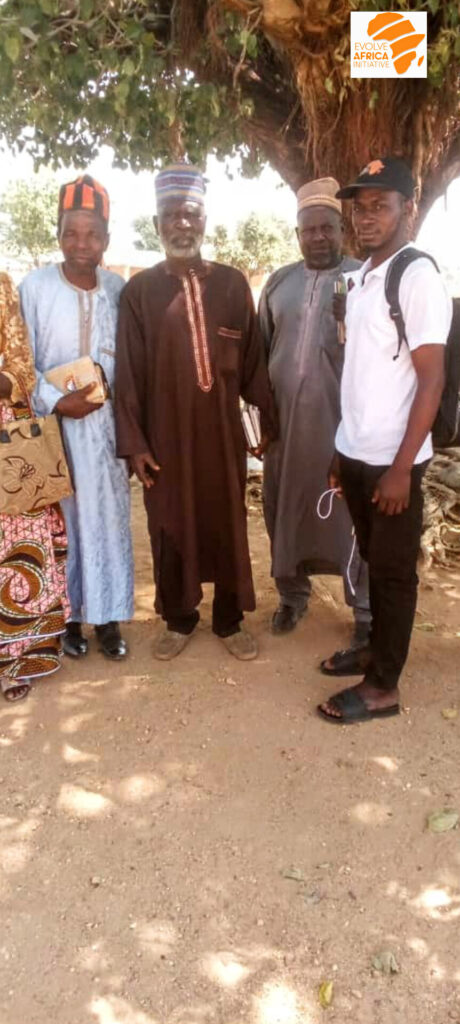
By supporting this project, you will be contributing to a larger movement that seeks to promote linguistic diversity, preserve cultural heritage, and empower marginalized communities. We believe that everyone deserves access to information and knowledge in their own language, and we are committed to making this a reality. If you are interested in supporting our Bible translation project or learning more about our work, please do not hesitate to contact us evolveafricainitiate@gmail.com. We look forward to partnering with you to make a positive impact on the lives of the Kusur people and other marginalized communities.
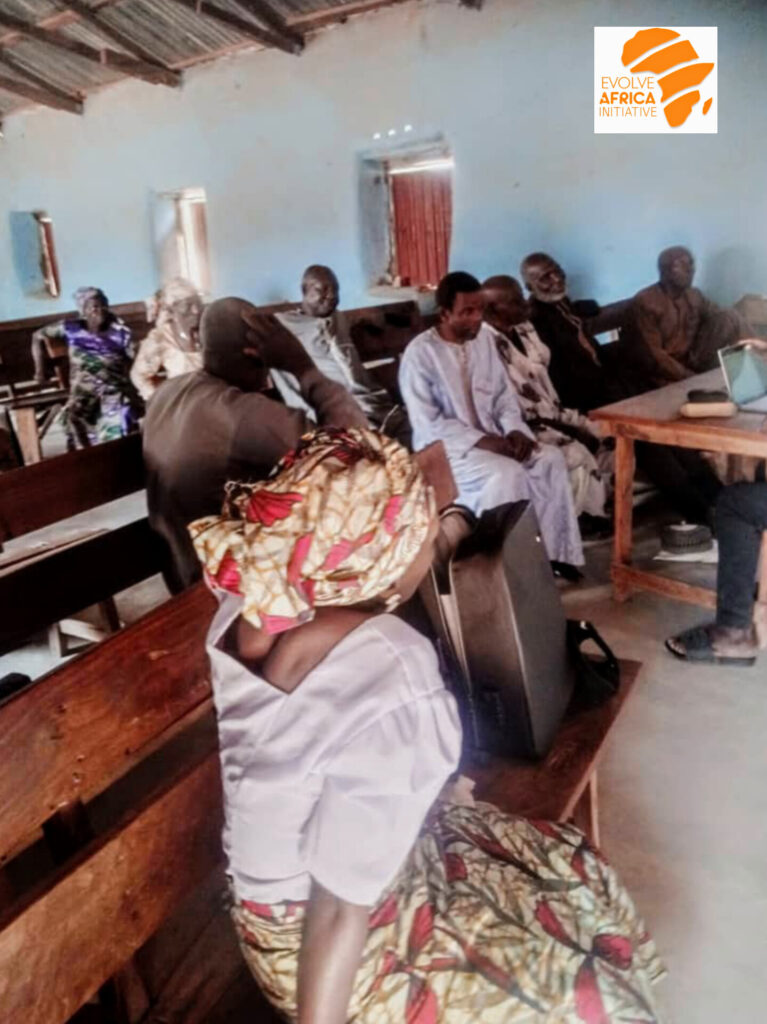
Together, we can create a more inclusive and equitable world where everyone has access to the information and knowledge they need to thrive.
